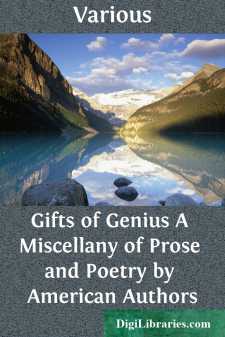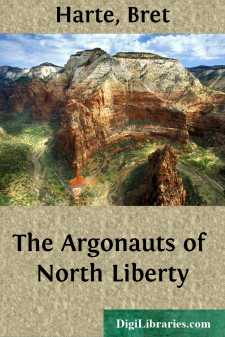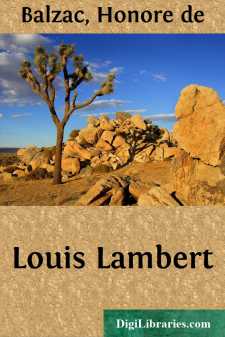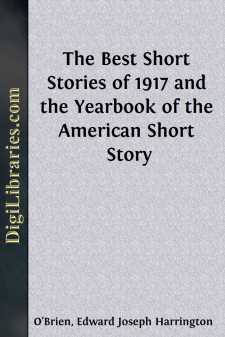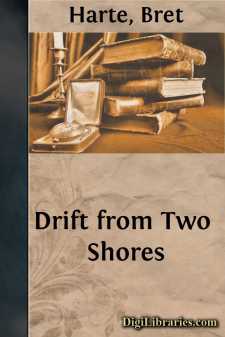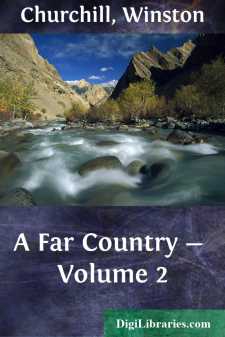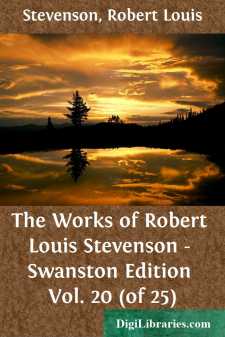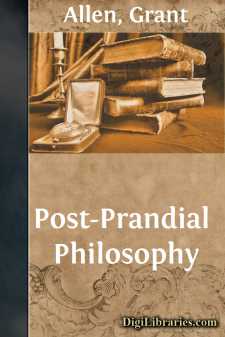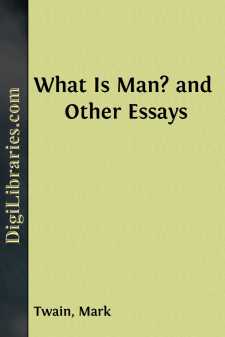Literary Collections
- American 84
- Ancient, Classical & Medieval 14
- Asian 1
- Australian & Oceanian 1
- Canadian 55
- Continental European 121
- English, Irish, Scottish, Welsh 179
- Essays 160
- General 24
- Letters 46
- Middle Eastern 1
Literary Collections Books
Sort by:
by:
Various
INTRODUCTORY. This volume speaks so well for itself that it does not need many words of preface to commend it to a wide circle of readers. Its rich and varied contents, however, become far more interesting when interpreted by the motive that won them from their authors; and when the kindly feeling that offered them so freely is known, these gifts, like the pearls of a rosary, will be prized not only...
more...
by:
Bret Harte
CHAPTER I The bell of the North Liberty Second Presbyterian Church had just ceased ringing. North Liberty, Connecticut, never on any day a cheerful town, was always bleaker and more cheerless on the seventh, when the Sabbath sun, after vainly trying to coax a smile of reciprocal kindliness from the drawn curtains and half-closed shutters of the austere dwellings and the equally sealed and hard-set...
more...
by:
Ralph Connor
CHAPTER I THE FOOTHILLS COUNTRY Beyond the great prairies and in the shadow of the Rockies lie the Foothills. For nine hundred miles the prairies spread themselves out in vast level reaches, and then begin to climb over softly rounded mounds that ever grow higher and sharper till, here and there, they break into jagged points and at last rest upon the great bases of the mighty mountains. These rounded...
more...
by:
Honore de Balzac
LOUIS LAMBERT Louis Lambert was born at Montoire, a little town in the Vendomois, where his father owned a tannery of no great magnitude, and intended that his son should succeed him; but his precocious bent for study modified the paternal decision. For, indeed, the tanner and his wife adored Louis, their only child, and never contradicted him in anything. At the age of five Louis had begun by reading...
more...
Grateful acknowledgment for permission to include the stories and other material in this volume is made to the following authors, editors, publishers, and copyright holders: To The Pictorial Review Company and Miss Edwina Stanton Babcock for permission to reprint "The Excursion," first published in The Pictorial Review; to The Century Company and Mr. Thomas Beer for permission to reprint...
more...
by:
Bret Harte
THE MAN ON THE BEACH He lived beside a river that emptied into a great ocean. The narrow strip of land that lay between him and the estuary was covered at high tide by a shining film of water, at low tide with the cast-up offerings of sea and shore. Logs yet green, and saplings washed away from inland banks, battered fragments of wrecks and orange crates of bamboo, broken into tiny rafts yet odorous...
more...
This was not my first visit to the state capital. Indeed, some of that recondite knowledge, in which I took a pride, had been gained on the occasions of my previous visits. Rising and dressing early, I beheld out of the car window the broad, shallow river glinting in the morning sunlight, the dome of the state house against the blue of the sky. Even at that early hour groups of the gentlemen who made...
more...
A TALE OF A LION RAMPANT It was in the month of May 1813 that I was so unlucky as to fall at last into the hands of the enemy. My knowledge of the English language had marked me out for a certain employment. Though I cannot conceive a soldier refusing to incur the risk, yet to be hanged for a spy is a disgusting business; and I was relieved to be held a prisoner of war. Into the Castle of Edinburgh,...
more...
by:
Grant Allen
THE STRUGGLE FOR LIFE AMONG LANGUAGES. A distinguished Positivist friend of mine, who is in most matters a practical man of the world, astonished me greatly the other day at Venice, by the grave remark that Italian was destined to be the language of the future. I found on inquiry he had inherited the notion direct from Auguste Comte, who justified it on the purely sentimental and unpractical ground...
more...
by:
Mark Twain
WHAT IS MAN? I a. Man the Machine. b. Personal Merit (The Old Man and the Young Man had been conversing. The Old Man had asserted that the human being is merely a machine, and nothing more. The Young Man objected, and asked him to go into particulars and furnish his reasons for his position.) Old Man. What are the materials of which a steam-engine is made? Young Man. Iron, steel, brass, white-metal,...
more...


